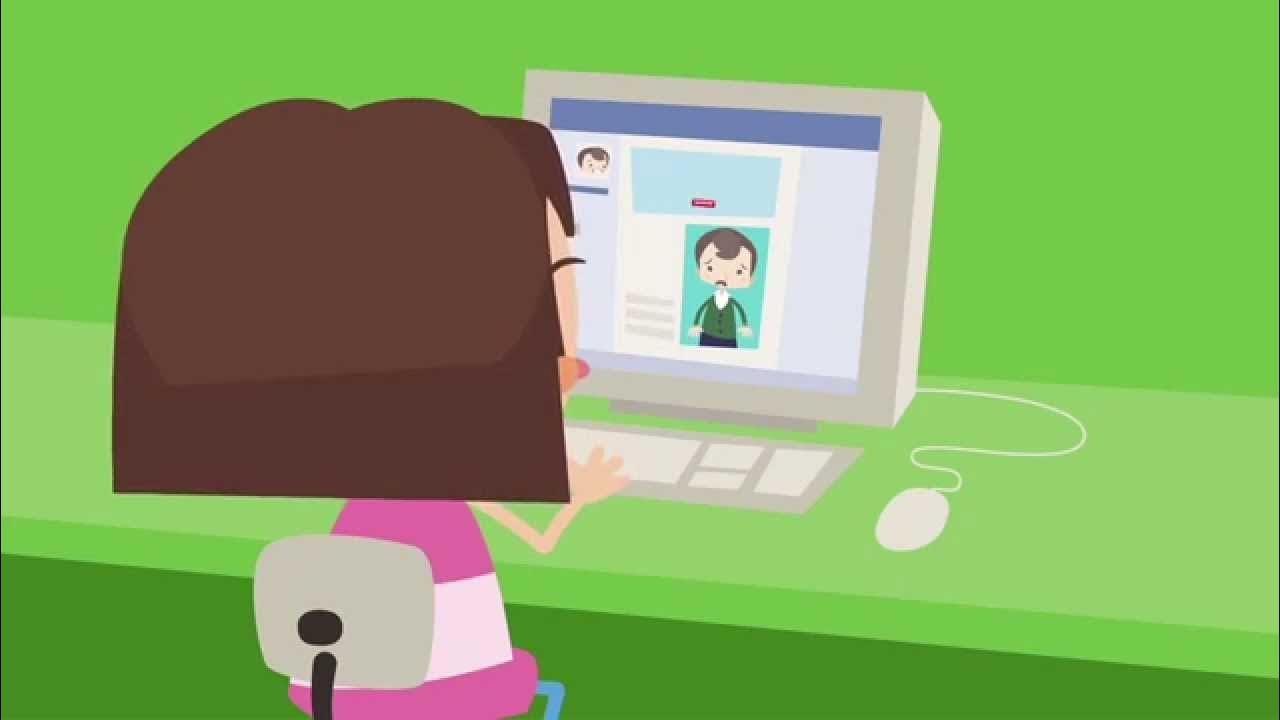informatika kelas 9 bab 5 Jaringan Komputer dan Internet JKI bag 8 hal 67 68
Summary
TLDRIn this video, the speaker discusses the importance of internet safety, privacy, and responsible behavior online. Starting with an introduction to computer networks and the global reach of the internet, the speaker highlights the risks of oversharing personal information, cyberbullying, and the long-lasting consequences of online actions. The importance of respecting others' privacy, avoiding harmful comments or the spreading of misinformation, and using social media with caution is emphasized. The speaker also advises on maintaining digital security, safeguarding personal data, and using the internet responsibly for personal growth and communication.
Takeaways
- 😀 Respect privacy: It is important to understand the significance of privacy online and respect others' personal information.
- 😀 Be cautious with online posts: Before sharing anything online, consider the long-term consequences, as things posted may remain permanent.
- 😀 Avoid cyberbullying: Be aware of the impact your comments can have on others, and avoid engaging in harmful behavior online.
- 😀 Think before posting personal information: Sharing personal details such as photos, passwords, or sensitive information can lead to privacy breaches or identity theft.
- 😀 Understand the legal consequences: Spreading false information or sharing someone’s private content without permission can lead to legal consequences.
- 😀 Use reliable sources: Ensure that the information you share comes from trusted and verified sources to avoid spreading misinformation.
- 😀 Maintain a healthy online/offline balance: Do not let social media or internet use take away from important offline interactions or responsibilities.
- 😀 Protect your digital identity: Be careful about what you share online, and safeguard your personal and financial information to prevent misuse.
- 😀 Criticize ideas, not individuals: When expressing disagreement, focus on discussing ideas or policies rather than attacking individuals personally.
- 😀 Understand the dangers of oversharing: Constantly sharing personal experiences or sensitive details online can leave you vulnerable to unwanted attention or criticism.
Q & A
What is the main focus of the video?
-The main focus of the video is on the responsible use of computer networks and the internet, highlighting the importance of privacy, respecting others, and using the internet wisely.
How does the speaker explain the concept of the internet as a global network?
-The speaker explains that the internet allows for global connectivity, where two computers can communicate directly, and through internet technology, people can connect across the world, even though the world has boundaries.
What does the speaker say about privacy on the internet?
-The speaker emphasizes that privacy on the internet should be respected and that personal information should not be shared recklessly. The speaker warns against oversharing personal details, especially on social media.
How does the speaker suggest we should handle online interactions?
-The speaker suggests using logic, avoiding personal attacks, and respecting others' opinions when interacting online. Online interactions should focus on constructive discussion rather than insults or arguments that stray from the topic.
What is the potential consequence of sharing personal photos or information online without consent?
-The speaker warns that sharing photos or personal information without consent can violate someone's privacy and lead to legal consequences, including criminal charges under the ITE Law in Indonesia.
What is the role of social media in spreading information, according to the speaker?
-The speaker highlights the role of social media in spreading information but stresses the importance of verifying the information before sharing. Spreading false information or hoaxes can have harmful consequences, both legally and socially.
What are some examples of irresponsible online behavior the speaker mentions?
-Examples of irresponsible online behavior mentioned by the speaker include cyberbullying, sharing false information, attacking people's personal characteristics, and oversharing private details on social media.
What is the speaker's advice regarding the posting of personal opinions on social media?
-The speaker advises that when posting opinions on social media, it is important to avoid personal attacks and focus on discussing policies or ideas. Arguments should be logical and constructive, not directed at individuals.
How can individuals protect their privacy online, according to the speaker?
-The speaker advises individuals to protect their privacy by not sharing sensitive information, such as passwords, identification photos, or personal data like credit card numbers, on the internet. It's also important to control who has access to personal information.
What does the speaker say about the dangers of internet addiction?
-The speaker cautions against becoming overly absorbed in social media and internet use, which can lead to a disconnection from real-life interactions, especially within families. It's important to balance online activities with face-to-face communication.
Outlines

This section is available to paid users only. Please upgrade to access this part.
Upgrade NowMindmap

This section is available to paid users only. Please upgrade to access this part.
Upgrade NowKeywords

This section is available to paid users only. Please upgrade to access this part.
Upgrade NowHighlights

This section is available to paid users only. Please upgrade to access this part.
Upgrade NowTranscripts

This section is available to paid users only. Please upgrade to access this part.
Upgrade NowBrowse More Related Video

Responsible Use of Technology for Kids - First Mobile - Cyberbullying - Fake News - Online Privacy

BISA MENJAWAB | BAHASA INDONESIA KELAS 6 HALAMAN 206-209 KURIKULUM MERDEKA

ETIKA DUNIA MAYA (Etika Profesi Teknik Informatika)

Teach students about posting publicly or privately online

Educlic: Riesgos en Internet

Class 8 Chapter 9 - Cyber Ethics | CBSE based Cyber Ethics | NCERT
5.0 / 5 (0 votes)